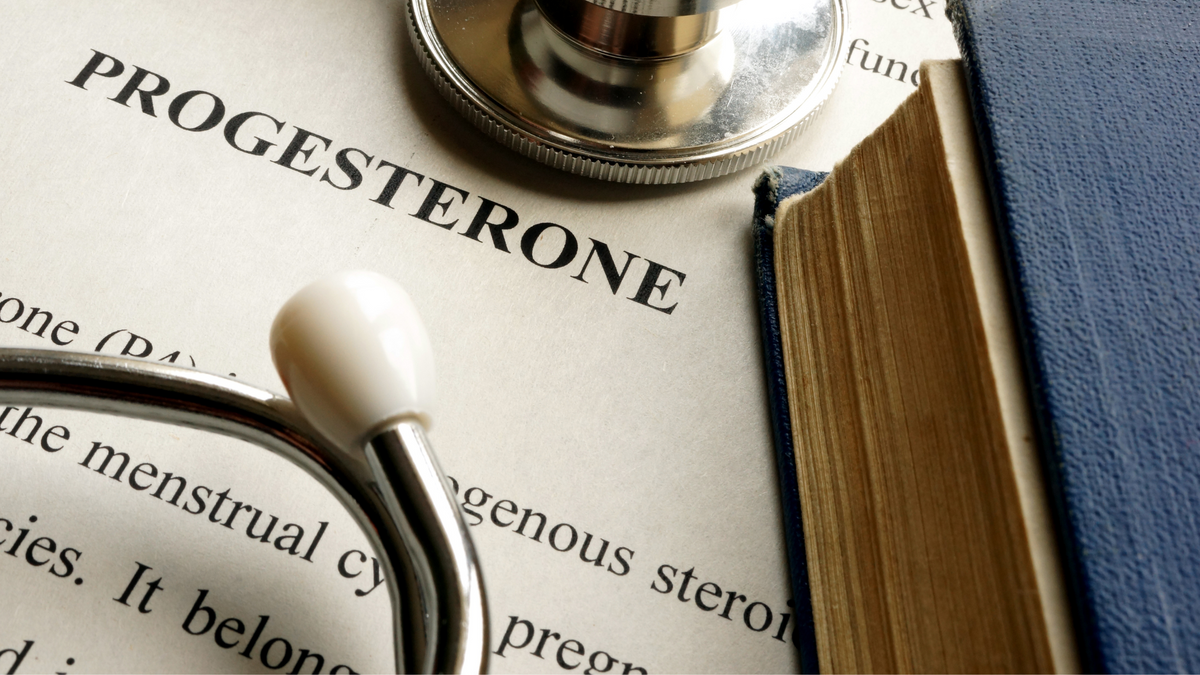Signs and Symptoms of Progesterone Imbalance
Progesterone is a key hormone in reproductive and overall health, playing a crucial role in menstrual cycle regulation, pregnancy maintenance, and nervous system function. When progesterone is out of balance, it can manifest in a range of physical, emotional, and cognitive symptoms.
Low Progesterone Symptoms:
- Irregular or heavy menstrual cycles
- Shortened luteal phase (second half of the cycle)
- PMS symptoms, including mood swings and breast tenderness
- Anxiety and depression
- Sleep disturbances, particularly difficulty falling or staying asleep
- Increased risk of miscarriage or infertility
- Water retention and bloating
- Brain fog and poor concentration
High Progesterone Symptoms:
- Fatigue and sluggishness
- Dizziness or lightheadedness
- Increased bloating and digestive sluggishness
- Breast tenderness
- Mood fluctuations, including increased irritability
Root Causes of Progesterone Imbalance
Functional medicine seeks to uncover the root causes of hormonal imbalances rather than simply addressing symptoms. Here are the common drivers behind progesterone irregularities:
Chronic Stress and Cortisol Dysregulation
High stress leads to elevated cortisol, which can deplete progesterone through a process called "pregnenolone steal," where the body's resources prioritize cortisol production over progesterone synthesis.
Estrogen Dominance
If estrogen levels are too high relative to progesterone, it can create an imbalance. Factors contributing to estrogen dominance include liver detoxification issues, environmental toxin exposure (xenoestrogens), and inadequate progesterone production post-ovulation.
Poor Ovulation or Anovulation
Since progesterone is primarily produced after ovulation, anything that disrupts ovulation (such as PCOS, thyroid dysfunction, excessive exercise, or under-eating) can lead to insufficient progesterone levels.
Nutrient Deficiencies
Certain vitamins and minerals, such as magnesium, zinc, vitamin B6, and vitamin C, play critical roles in progesterone production. Deficiencies can impair the body’s ability to maintain balanced hormone levels.
Thyroid Dysfunction
Hypothyroidism, Hashimoto’s thyroiditis, and other thyroid imbalances can directly impact progesterone levels by reducing overall hormone synthesis and disrupting menstrual cycle regulation.
Liver and Gut Health Issues
The liver metabolizes hormones, and the gut helps eliminate excess estrogen. Poor liver function or dysbiosis in the gut can contribute to estrogen-progesterone imbalances.
Functional Medicine Strategies for Progesterone Optimization
Addressing progesterone imbalance from a functional medicine standpoint involves a multi-faceted approach that includes lifestyle modifications, targeted nutrition, and strategic supplementation.
Stress Management & Adrenal Support
- Incorporate relaxation techniques like mindfulness, deep breathing, and yoga.
- Ensure adequate sleep and circadian rhythm regulation.
- Adaptogenic herbs like ashwagandha and l-theanine can support adrenal function and cortisol balance.
Support Ovulation and Hormonal Balance
- Consume adequate healthy fats (avocados, nuts, olive oil) for hormone production.
- Maintain stable blood sugar with balanced meals containing protein, fiber, and healthy fats.
Liver Detox and Gut Support
- Increase intake of cruciferous vegetables (broccoli, cauliflower, kale) to support estrogen metabolism.
- Reduce exposure to endocrine-disrupting chemicals (plastics, pesticides, personal care products with synthetic fragrances).
- Optimize gut microbiome health with probiotics and fiber-rich foods.
Hormonal Support with DHEA
- DHEA: A precursor to progesterone and other steroid hormones, DHEA supplementation can help support hormone balance, particularly in cases of adrenal insufficiency or age-related decline.
When to Seek Functional Testing
If progesterone imbalance is suspected, functional medicine practitioners often recommend hormone testing, such as:
- DUTCH test: Provides a comprehensive analysis of hormone metabolites and adrenal function.
- Salivary or Serum Progesterone Levels: Measures bioavailable progesterone.
- Thyroid Panel: Evaluates TSH, free T3, free T4, and thyroid antibodies to rule out thyroid-related causes.
Conclusion
Progesterone plays a critical role in overall health, and imbalances can lead to a variety of symptoms impacting fertility, mood, and metabolic function. A functional medicine approach aims to uncover and address the underlying causes through stress management, dietary support, detoxification, and targeted supplementation. By taking a root-cause approach, individuals can restore balance naturally and optimize overall health.
Professional Support:
If symptoms persist, work with a functional medicine practitioner to tailor a personalized plan. Programs at the WAE clinic offer structured approaches to identify root causes and and promote hormonal balance for optimal health..
*This content has been generated with the assistance of ChatGPT, an AI language model. While every effort has been made to ensure originality and accuracy, the content may inadvertently include or resemble information from other sources. This is not intentional and we encourage users to conduct their own verification if specific details are critical for their purposes. The use of this AI-generated content is for informational purposes only and should not be considered as a substitute for professional medical advice and is not intended to diagnose or treat.
Disclaimer: The information provided in this article is for educational purposes only and is not intended as medical advice. The supplements mentioned are not intended to diagnose, treat, cure, or prevent any disease. Please consult a healthcare provider before starting any new supplement regimen."

